The tepid breath of budding daylight kisses the cheeks of early dwellers, while Mother Nature’s icy fingers trace their spines. They open their eyes in a languid fashion, and wipe away night crystals. They listen to their hearts harmonize a melancholy drum beat on the walls of their empty stomachs. The only way to assuage the hollow abyss nested in the catacombs of their body, is to indulge in a gratifying breakfast, and this is where it all begins.
Breakfast is an international emblem, and is noted by the John Hopkins Bloomberg School of Public Health as the most important meal of the day because it provides you with the energy and nutrients that lead to increased concentration. However, the health benefits associated with breakfast are not the only variables that contribute to the success of an individual. The idea of breakfast- sitting with family, establishing a sense of community, articulating a routine, or even invigorating one’s mind by cracking eggs while tediously timing when to flip a pancake- is important for empowering all sectors of the individual as well.
Ken Albala, history professor and director of the Food Studies MA program in San Francisco, states in his novel Food in Early Modern Europe that;
"Judging from cookbooks and dietary literature there was no such meal, or at least it was only recommended for children, invalids and the elderly who have weak digestive systems and must eat smaller meals more frequently. Nevertheless, there was such a meal, and some people took it regularly. The word itself comes from the late Latin disjejunare, meaning "to un-fast' or break the fast of the evening. Remarkably, the word was contracted in the Romance languages to disnare or disner in Olde French, or dinner in English. Thus the word dinner actually means breakfast. But the word is not recorded in English until 1463 in a royal account book that records expenses for breakfast, but it is not entirely clear whether this was an early dinner or another meal, the one we know as breakfast, eaten first thing in the morning." (Albala, p. 232)
Breakfast, according to Alba’s research, has transpired into a concept that has recently achieved its modern name. Other food historians analyze breakfast as having three prominent components. First, a majority of people throughout the world, in most times throughout history until today, were lucky to partake in this meal. Secondly, for most people this meal was, and still is, very simple. Lastly, breakfasts composed of multiple dishes or large portions are a privilege, associated with the leisured wealthy.
The story of social interaction and scientific advancement can also be a credited to the existence of breakfast. For instance, this is manifested through how the colonists had learned how to incorporate "new world" foods, such as corn muffins and grits, into their diets. While European immigrants introduced the traditional eggs, bacon, hash, potato pancakes, and doughnuts to the Americas, they also adapted new breakfast traditions such as cooking flat cakes over a campfire on the flat part of a garden hoe, or integrating corn into a baked good or porridge form. This assimilation into a new country and lifestyle seen beyond the cultural barriers and emphasizes how colonists were amiable to adjusting their breakfast norms in order to survive.
Pioneers undertaking the journey from the East to the West coast, also learned to adapt their foods for wagon cooking. A typical breakfast was seasonal, and highly dependent on one’s location and supplies. A typical pioneer breakfast in the winter was corn and cold bread, stew, boiled eggs, hot cakes, sausages, fried potatoes, chops, omelets, coffee, and biscuits.
In 1866, native born Texans Charles Goodnight and Oliver Loving invented the chuckwagon to accommodate the insatiable appetite of American cowboys. Their primary role was preparing an adequate meal for them. Cowboys’ daunting work day was physically demanding and required waking up several hours preceding the cowhands, and inevitably acquiring less sleep.
In addition to providing a healthy diet comprised of diverse food to these nomads, Goodnight and Loving also provided a sense of community and humanization through their new invention. Although historians note that the behavior of these men were generally barbaric, they emphasize that there was a set of unspoken rules regarding the etiquette of a cowboy around the chuckwagon. But at the core of this genius idea, one should accentuate the feeling of waking up to the stale stench of freshly brewed black coffee and the smooth sizzle of eggs and refried beans on a makeshift stove providing a comfortable atmosphere that would set the tone for the upcoming day.
Breakfast has also been a focus in the field of health science and scientific innovation for over a hundred years. This initiative began with the food reformers in the 19th century advocating a healthy diet that promoted the consumption of breakfasts composed of dishes such as corn flakes, granola, and shredded wheat. As multinational corporations introduced Pop Tarts, breakfast sandwiches, and bagels the market, their profits raised along with the weight of billions of people around the world.
The breakfast sector of the economy has expanded through scientific advancements of products such as instant oatmeal, protein bars, cholesterol-free egg product, and low-fat bacon. These instant foods have remodel the food sphere of the economy and have refined the meanings behind instant breakfast. In addition, restaurant businesses such as doughnut shops, 24 hour diners, and hotel services are also influencing the market. For instance, the minimum net worth of the Dunkin' Donuts franchise is $1.5 million and the minimum net worth of Starbucks is over $70.9 billion. Breakfast also impacts the social behaviors and tendencies of the human race.
Sociologist Alice Julier argues in her book, Eating Together, that dining with others can radically shift people’s perspectives because it reduces people’s perceptions of inequality. This allows individuals to view those of different races, genders, and socioeconomic backgrounds as more equal than they would in other social scenarios. Take for instance the distinct differences regarding eating arrangements of public schools in the early twentieth century until present day. In the early 1900s, national laws forbid students of various races from attending public schools together. This deprived them from having the opportunity to eat various meals of the day together, including breakfast. This alienation built a strong wall of segregation, and dehumanized inferior races.
The Finch family, in Harper Lee’s To Kill a Mockingbird, received lavish breakfast commodities from nearly every African-American in Maycomb County the day after Atticus fought for Tom Robinson’s justice in trial. Breakfast acted as cultural bridge, diminishing the divide of racism and segregation prevalent in 1962 Alabama. The concept of copious African Americans bequeathing a traditional and thoughtful breakfast to a white family in this time period, recognized a reformed community that redefined long established morals of the individuals within it.
The 1985 John Hughes American classic, The Breakfast Club, follows five diverse students as they endure Saturday detention under the authority of a dictative principal. This title possibly finds its roots in the unification between an array of distinctive individuals. As the detention transpires, stereotypes and status titles diminish and uncover the reality that at the base of humanity, everyone is relatively interconnected and similar. They are all members of the same club- the human race.
Eating breakfast in a home setting allows a family unit to come together and share experiences and stories regarding how they feel, how they slept, or how they plan to pursue the remainder of their day.
Near the beginning of Ian Fleming’s iconic story, Chitty-Chitty-Bang-Bang: The Magical Car, young siblings Jeremy and Jemima enjoy a plate of fried eggs and sausage prepared by the novelty inventions of their widowed father, Caractacus Potts. The scene occurs simultaneously with the family bonding over a shared admiration of Caractacus’s oddball inventions, and thankfulness for one another. This simple and enjoyable routine of preparing and eating breakfast as a family, simulates how small dosages of intimacy with loved ones momentarily overshadows the inevitable burdens in the proceeding day.
The idealistic home cooked breakfast with family has deteriorated over recent decades, with over 53% of adolescents stating they never eat breakfast with their families, and 26.2% claiming they eat breakfast together with family members one or two times per week. Breakfast in a family setting is withering away, however the overall concept of eating breakfast is not. School systems, the Food and Drug Administration (FDA), media outlets, politics and social standards have reinforced the concept of breakfast and have transformed it into the cosmopolitan tradition the world sees today.
Since the Industrial Revolution, the world has developed around a misguided assumption that our resources are infinite. However, they do not take into account that the largest components of productivity are relative, such as time, energy, and resources. These sectors are finite, and must be utilized in an appropriate fashion.
A recent Harvard study estimated that sleep deprivation costs American companies $63.2 billion a year in lost productivity. In addition, Stanford researcher Cheri D. Mah found informative results in her study regarding the performance of male basketball players. Those who had slept 10 hours a night and had allocated time for breakfast, fostered a dramatic 9 percent improvement in free-throws and three-point shooting.
Taking the time to relax and organize one’s morning to incorporate time for breakfast, is necessary, for this period of time has a principle toll on the success or failures of daily performance. Elementary and middle schools across the United States have began fortifying the concept of breakfast by serving it in the mornings in addition to including a breakfast curriculum in health science units.
Breakfast has also become an international icon from the home to the office setting as well. How many times has the bitter stench of coffee churned the stale air of a cubicle? How many times must the youthful intern go on ample coffee runs and bring back Grande, Iced, Sugar-Free, Vanilla Lattes with Soy Milk, stacked on Triple, Venti, Soy, No Foam Lattes that spill into the remaining Tall, Half-Caff, Soy Latte At 120 Degrees? How many times has that one lazy coworker left a trail of white confectioner’s sugar from a Dunkin’s delicious jelly donut? Breakfast is a prevalent component of the office setting, and most employees are familiar with it in one way or another. This implementation of breakfast in the office setting, also acknowledges that higher authorities recognize the importance of the meal, and that it will promote higher production levels.
The world is comprised of 196 countries, with a smorgasbord of cultures. This variation of tradition within each country corresponds to a different type of, or hybrid of traditional breakfast meals.
In China, individuals devour sticky dumplings, savoury vegetable soup, fried sponge cake, steamed creamy custard bun, and porridge. In Iran, a typical breakfast consists of sweet black tea, bread, butter, feta cheese, and sometimes fresh fruit and nuts. In France, individuals consume tea, coffee, juice, or hot chocolate, with bread and butter or pastries. In Poland, breakfast is scrambled eggs topped with kielbasa and potato pancakes. In Nigeria, a typical Yoruba breakfast includes Ogi and Akara with yam, fried eggs, and fried plantains. In England, the breakfast table is filled with baked halibut steaks, fried whiting, stewed figs, pheasant legs, collared tongue, kidneys on toast, sausages with fried bread, pig’s cheek and Melton pork pie. In America, breakfast is a stack of flapjacks smothered in savory mounds of melting butter, coated with pungent lakes of maple syrup oozing down its slopes onto strips of crispy bacon and fried eggs, paired with a tangy juice or bitter coffee.
The concept of breakfast has influenced the developments of social interaction and scientific advancement throughout history. Its diversity has unified individuals of different cultural and sociological backgrounds. The existence of breakfast develops an individual intellectually as much as it does physically. Eating breakfast is more than supplying your body with energy. It is a unification method that strengthens economies, matures an individual, and articulates bridges over cultural divides. Breakfast, is the most important meal of the world.

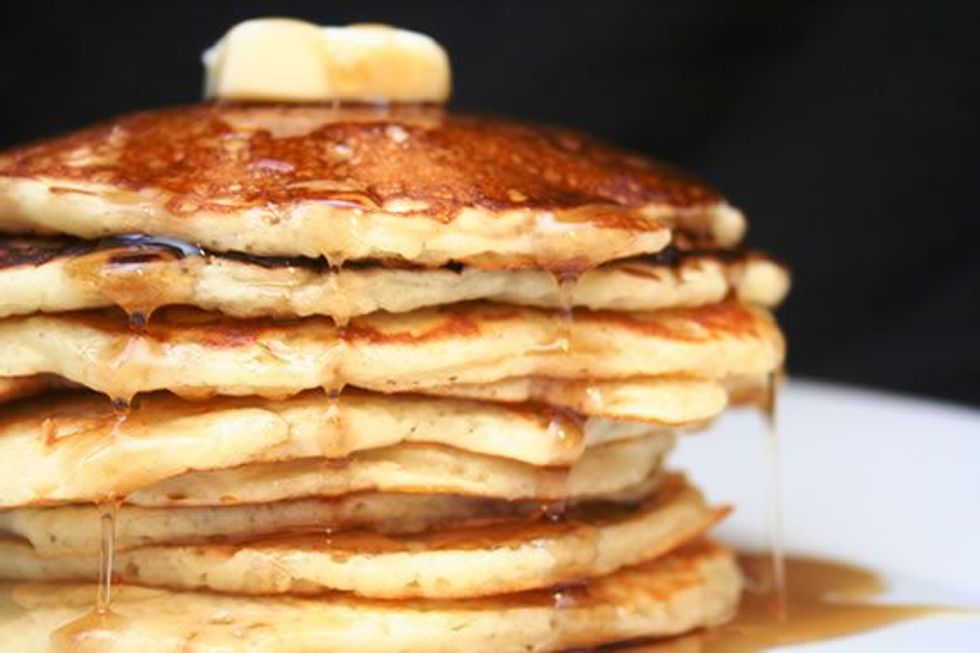

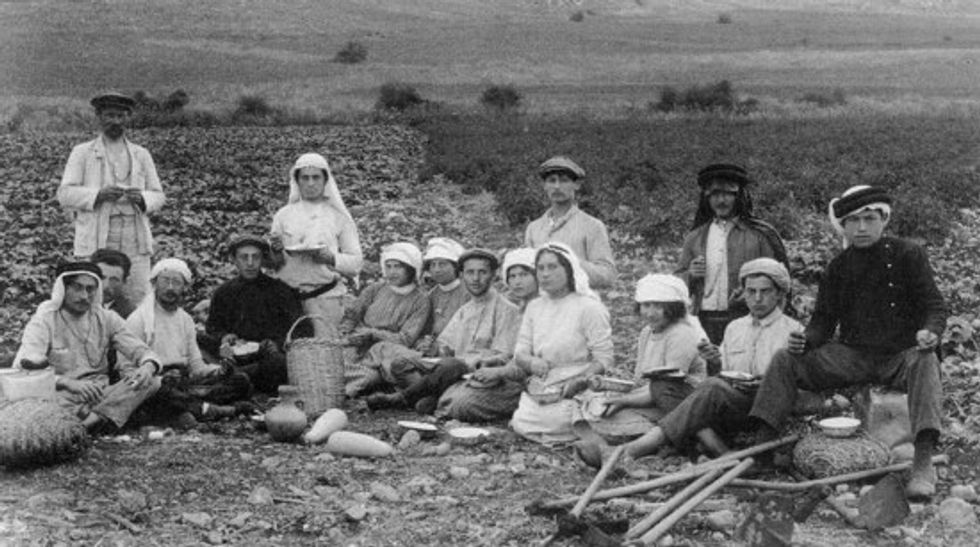

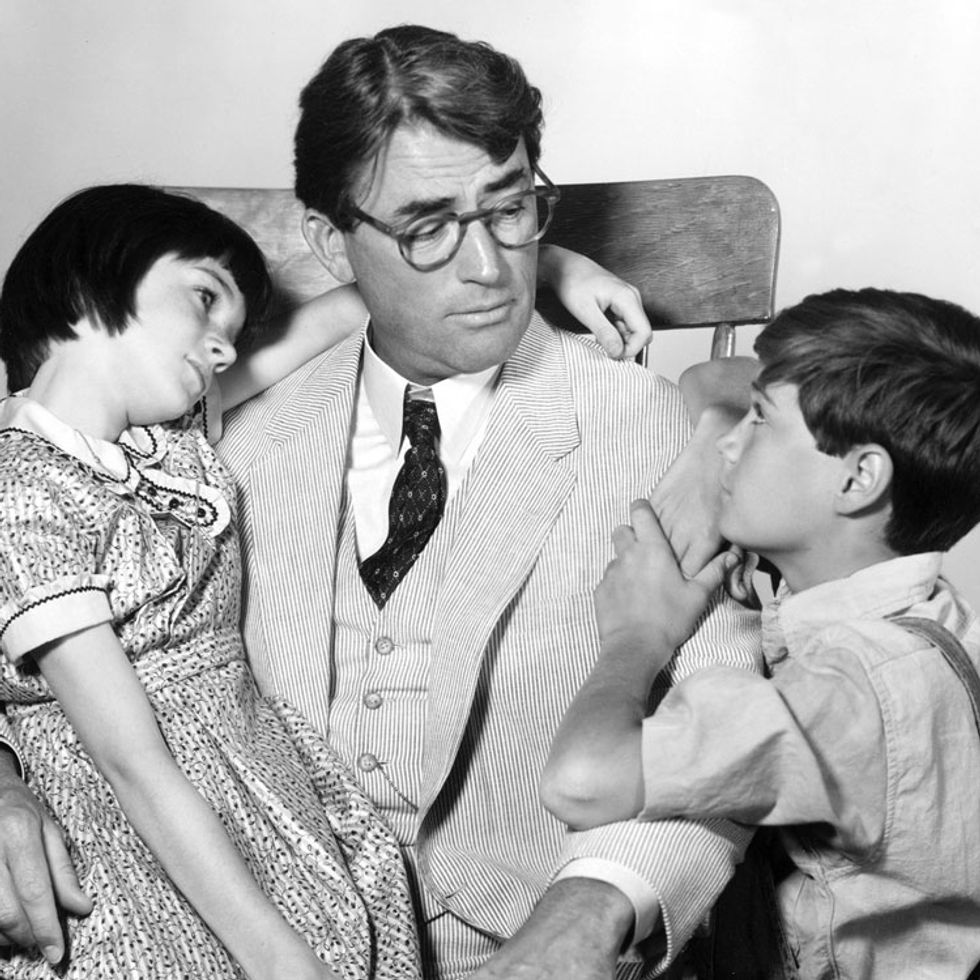
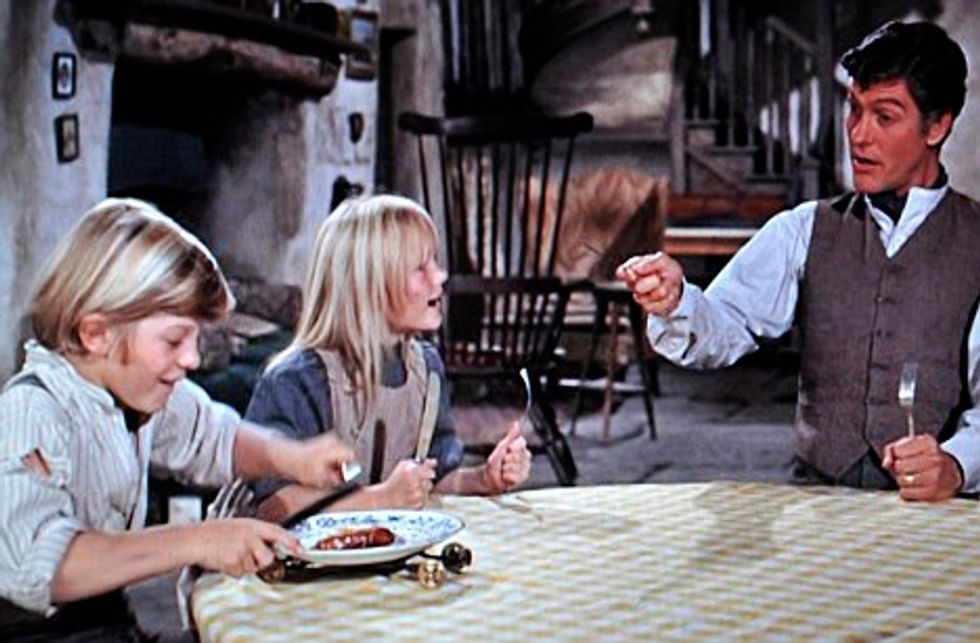

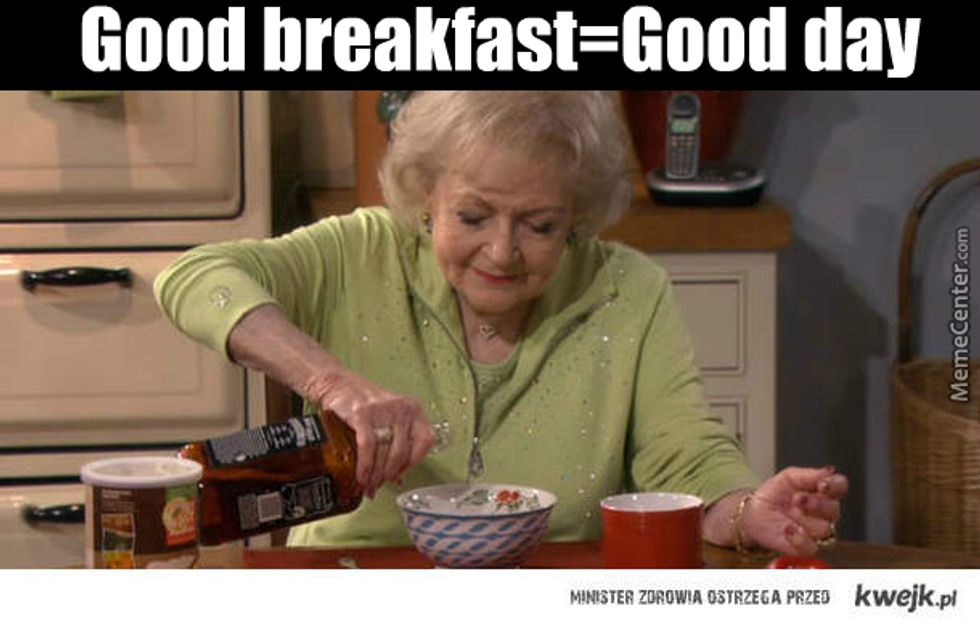

 Photo by
Photo by  Photo by
Photo by  Photo by
Photo by 



















